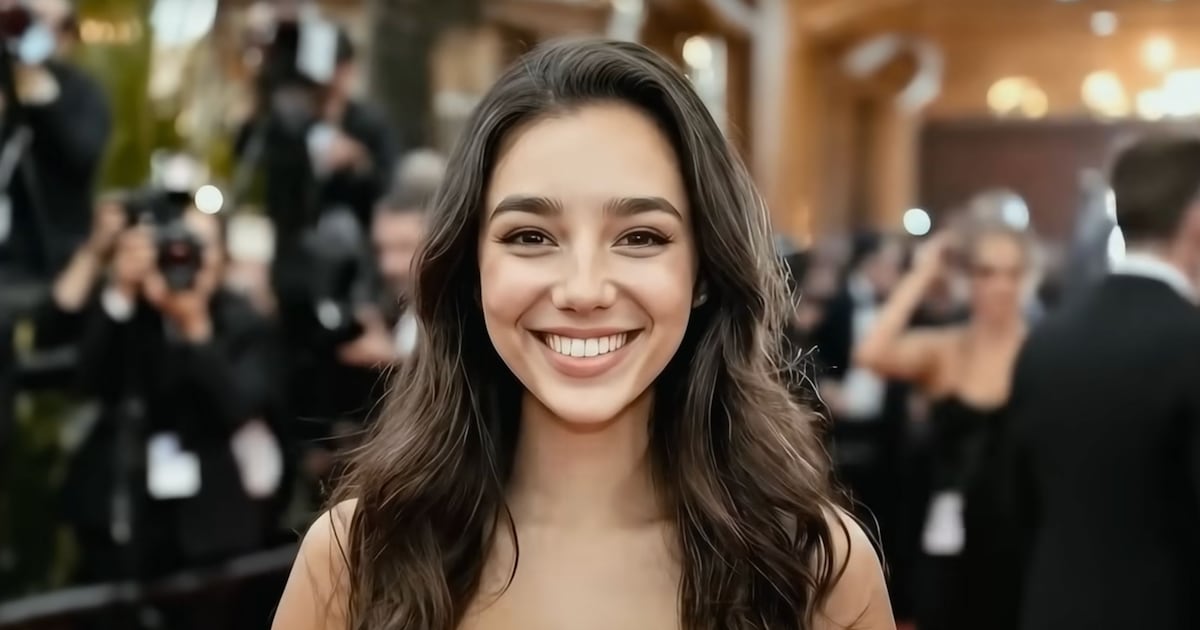World
Hollywood Faces Disruption as AI ‘Actor’ Tilly Norwood Emerges

Hollywood is grappling with a new sensation: Tilly Norwood, an artificial intelligence-generated actress, is capturing attention and raising concerns within the film industry. The British AI creation, which aims to embody the qualities of established stars like Scarlett Johansson, has sparked alarm among traditional actors and film executives alike. During a recent podcast interview with Variety, actress Emily Blunt expressed her fears about the situation, stating, “That is really, really scary.”
Creator Eline Van der Velden, a former actress from the Netherlands with a master’s degree in physics, envisions Norwood as the next major star. This ambition has drawn criticism from established actors like Blunt, who lamented the potential loss of “human connection” in an industry increasingly drawn to AI-driven solutions. “Please stop taking away our human connection,” Blunt urged.
The emergence of Norwood highlights a growing trend in Hollywood, where executives are intrigued by the prospect of utilizing AI actors. “She’s not going to talk back,” remarked one talent agent, reflecting a desire for more controllable and cost-effective performers. The implications of AI in entertainment extend beyond mere performance; it raises questions about authenticity and the nature of creativity.
AI expert Nate Soares, co-author of the book If Anyone Builds It, Everyone Dies, noted that the rise of AI actors like Norwood signifies a shift towards a model where one AI can control multiple characters, blurring the lines between reality and artificiality. This development is part of a larger technological evolution that challenges traditional storytelling and actor representation.
The concerns surrounding AI do not end with acting. Recently, Sam Altman, head of OpenAI, announced the launch of an app called Sora, capable of generating hyper-realistic videos. This technology can create fabricated scenes that mimic real events, further complicating the landscape of trust in visual media. According to The New York Times, such advancements could lead to increased disinformation and a general erosion of truth, raising fears about their impact on political and social dynamics.
As Hollywood adapts to these new technologies, the industry is experiencing a shift from star-driven narratives to algorithm-driven content. The days of blockbuster films featuring iconic actors are fading, as the focus shifts towards franchises and streaming content designed for quick consumption. Actress Lola Kirke acknowledged this reality, remarking, “It’s a business, after all, and they have to keep up with the preferences and demands of the public.”
While some view the rise of AI in Hollywood with skepticism, others believe it could offer new avenues for creativity. Yet, experts like Jaron Lanier caution against the unchecked proliferation of AI. He argued that if the industry becomes dominated by simulations, it risks alienating audiences and undermining the very fabric of society. “If you make the whole world run by fakes and simulations, everybody becomes increasingly more dysfunctional,” he warned.
The debate surrounding AI in Hollywood is emblematic of broader societal concerns about technology’s role in daily life. As the boundaries between the real and the artificial continue to blur, questions about authenticity, creativity, and human connection become increasingly urgent. As the industry navigates these changes, it remains to be seen how AI will reshape the landscape of entertainment in the coming years.
-

 Top Stories3 months ago
Top Stories3 months agoTributes Surge for 9-Year-Old Leon Briody After Cancer Battle
-

 Entertainment4 months ago
Entertainment4 months agoAimee Osbourne Joins Family for Emotional Tribute to Ozzy
-

 Politics4 months ago
Politics4 months agoDanny Healy-Rae Considers Complaint After Altercation with Garda
-

 Top Stories4 months ago
Top Stories4 months agoIreland Enjoys Summer Heat as Hurricane Erin Approaches Atlantic
-

 World5 months ago
World5 months agoHawaii Commemorates 80 Years Since Hiroshima Bombing with Ceremony
-

 Top Stories3 months ago
Top Stories3 months agoNewcastle West Woman Patricia Foley Found Safe After Urgent Search
-

 Top Stories5 months ago
Top Stories5 months agoFianna Fáil TDs Urgently Consider Maire Geoghegan-Quinn for Presidency
-

 World5 months ago
World5 months agoCouple Convicted of Murdering Two-Year-Old Grandson in Wales
-

 World5 months ago
World5 months agoGaza Aid Distribution Tragedy: 20 Killed Amid Ongoing Violence
-

 World5 months ago
World5 months agoAristocrat Constance Marten and Partner Convicted of Infant Murder
-

 Top Stories4 months ago
Top Stories4 months agoClimbing Errigal: A Must-Do Summer Adventure in Donegal
-

 Top Stories4 months ago
Top Stories4 months agoHike Donegal’s Errigal Mountain NOW for Unforgettable Summer Views









